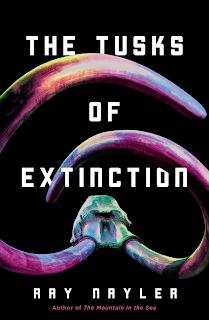Destruction of the Temple by Barry N. Malzberg
159 pages, Paperback
First published February, 1974
When I read this, I didn’t know I would be getting the author back on the Dickheads Podcast, I just selected it randomly off the shelf as a Malzberg novel I hadn’t yet read and was eager to give it a shot. Just after I finished it Barry reached out to me about a not super favorable review of his novel The Last Transaction. Despite my review, he was excited that I wrote about it, and we had a cool exchange over e-mail about this old book. Let's face it an author who wrote as much as Barry did in his day is not going to have a perfect batting record.
Barry Malzberg is a science fiction writer who wrote under multiple names publishing more SF stories and novels in the 60s and 70s than entire basketball teams’ worth of writers. He also held jobs at several major publishers, agents, and more. His position in the community is unique. His book of essays about the genre is a must-read for sure.
Reviewing a book that is essentially a fever dream commenting on a cultural-political experience from a decade fifty years in the rearview mirror is an interesting task for a science reader. DOTT is a thought experiment using science fictional concepts to explore the craziness in a culture that had multiple powerful leaders assassinated in the public eye in a short period. While the JFK assassination gets the most attention in this novel, the cover has Lee Harvey Oswald, Martin Luther King, and a clown-faced President Johnson in the image. The themes are pretty clear.
DOTT is everything I read Malzberg for. It is a very post-New Wave work of Science Fiction. Strange almost to the point of bizarro, the narrative is somewhat confusing in the opening act, if you don’t read the back and go in cold it will be confusing. This might be different for others but that is how I felt. That said I was never bored. I wanted to understand what was happening so I kept reading.
Set in post-war New York we are thrown into the middle of a stage play recreating the JFK assassination over and over again. Our point of view character is the director but at some point realizes he is suddenly in the play, maybe he has traveled through time, and he is reliving the events. The surreal events of the novel highlight the chaos of the era expanded into an alternate future.
This narrative is chaos itself in many ways, but when Malzberg drills down on the driving scenes or the news narrative there are entire chapters of incredible prose. It makes you think this guy had all the chops of a PKD or a Ballard but without the Hollywood attention, his genius is recognized by serious fans and scholars.
“In the abscess of a dreaming space of America: taking the night roads out of the city, opening up the car to eighty-five on the straightaways, dodging the curves at a cutback to fifty-five, other cars approaching and disappearing like half-hunks of image skewered in dreams. Nothing else. If we and other cars meet- explosion, impaction, terrific wrenching, and then nothing else, ever but the cars seem to have no more existence than the speed which I push out of the vehicle, lunging it finally into a straight careening dive from the rise on which we have momentarily looked at America.
Looked at America and now fall to merge with it: Wonder Waffles and Sam’s Super bar, Dick’s drive in and Killer Cars hitting out their great spokes of light toward the land, the spokes of that great wheel called the land, knifing out the plains and darkness in their colors, the wheel like a knife in the hands, the old car failing in thrusts of power on those turns, but giving all it has left: three cylinders, forty-five horse powers on the open roads.”
I love this moment of prose but if you are looking for a mission statement. On page 134…
“This country is going to blow up. Something opens in my mind like curtains parting, I see fires, hear the sounds of shooting, the still doomed sense of panic rising and in this vision, I see only the death of my country but my own as well, the two intermingled; it must always be this way because driving the interstate I am the county.”
DOTT is a surreal rage directed at the fragile nature of a country that did survive, and in wave after wave fell victim to cultural violence. It might seem like the novel would not have the same impact but it is a science fictional lens worth looking into. The issues are dated but the theme of a fragile democracy is sadly still a thing. Malzberg should be respected as any of the masters writing in that era.











